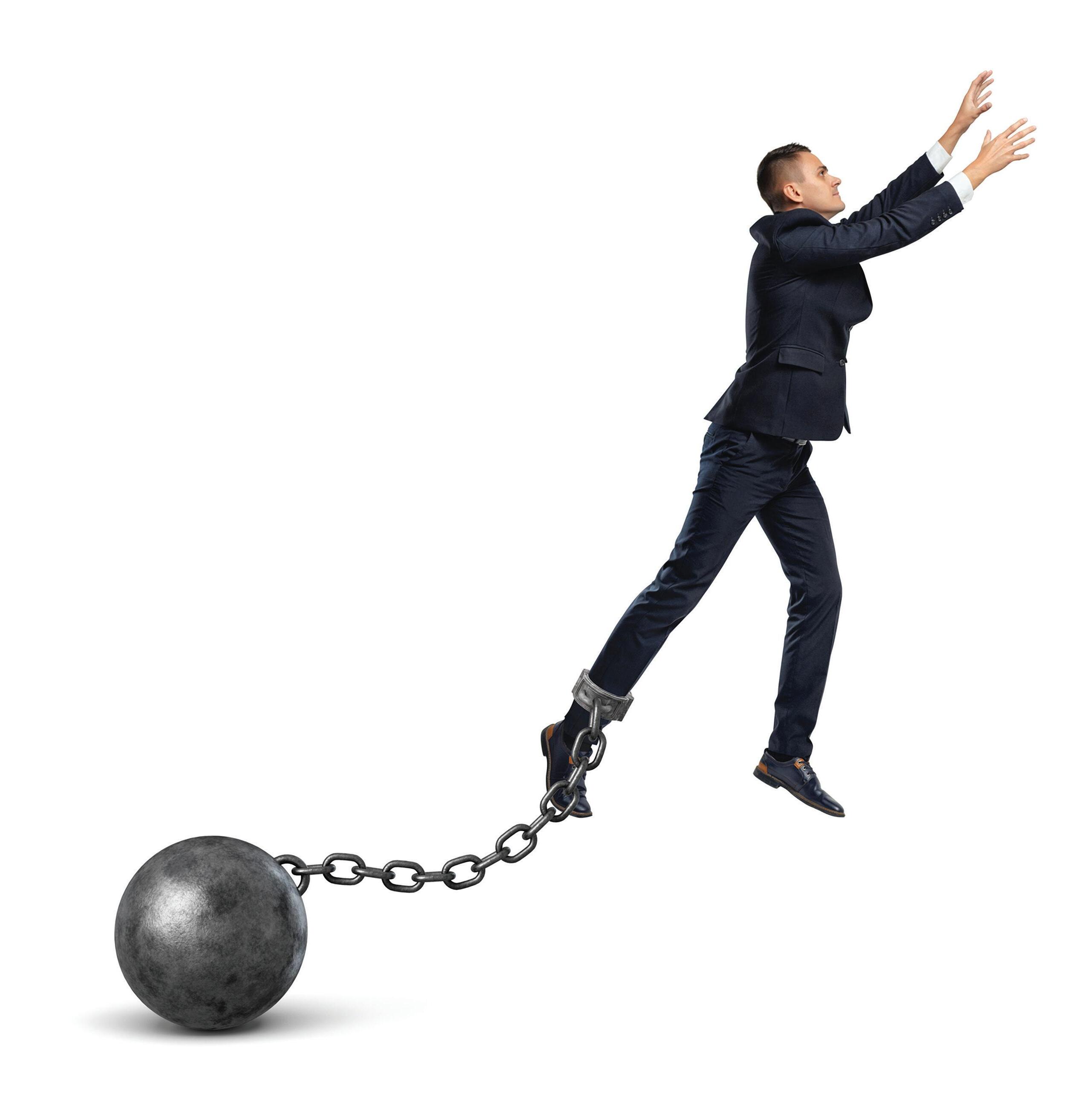
11 minute read
“Ethics is knowing the difference between what you have a right to do and what is right to do.”
“Ethics is knowing the difference between what you have a right to do and what is right to do.”
Potter Stewart

The world is not an easy one for the legal profession to navigate at the moment. There have been a lot of questions raised around who lawyers can and cannot act for. A spotlight has been shone on just how ethical lawyers are. They may have a right to do certain things - but are those things right to do? It may be said that the number of elephants in the room is growing to become a massive herd.
The Legal Services Board (LSB), as the overarching regulator for the profession, recently conducted a consultation into professional ethics. In the paper, their Chief Executive, Craig Westwood, stated;
‘Professional ethics lies at the heart of legal services. It is the foundation on which public trust is built and is the cornerstone of the legal profession's integrity. Maintaining and strengthening professional ethical duties is not just a regulatory necessity – it is fundamental to upholding the proper administration of justice and the rule of law. Recent events have highlighted that we cannot take professional ethics for granted. The challenges facing legal professionals are complex and evolving, from serving commercial interests and powerful clients to technological disruption. These pressures can test even the most principled practitioners, making it crucial that we create a working environment that supports and empowers ethical decision-making.’
Needless to say, the media are having a field day with this whole topic and would have us believe that there are endless lawyers out there doing terrible things when this is most definitely not the situation. SLAPPS and NDAs have been making headlines but the SRA has already addressed this situation and dealt with them.
Doing the right thing is an integral part of a lawyer’s DNA but determining what is right in today’s turbulent world can be perceived differently by different people.
Whilst we await the final findings of the consultation, there has been a lot of speculation that more regulation is on the cards.
We spoke to Richard Atkinson, the President of the Law Society of England and Wales, on his views.
“I genuinely believe the overwhelming percentage of the profession act in an incredibly ethical way - and not by accident. My own practice is criminal law, and ethics are driven home all the time. If you are operating in a sphere where there is a risk to your integrity and ethical standing, you are acutely aware of it and mindful constantly. Yes, issues arise from time to time, but these are really the exception. But there is a difference between failing occasionally to meet standards and not having standards, which is what is being implied currently. I am not convinced that there is a need for greater regulation but what there is always room for is more education, especially in the current climate.”

Doing the right thing is an integral part of a lawyer’s DNA but determining what is right in today’s turbulent world can be perceived differently by different people.
Richard says he has heard concerns being voiced as to how much ethics is being taught in the SQE to the extent that firms are having to step in to pick up on the shortfall. He believes ethics needs to be taught more formally and, yes, firms and, indeed the Law Society need to be constantly vigilant to fill in any gaps.
Richard is keen that in-house lawyers are not left out of the debate. Clearly such lawyers are under pressure from the commercial side of the companies they work for and demands may be made that are inconsistent with their ethical duties. To this end, the Law Society carried out a big piece of work which can now be found on their website. (https://www.lawsociety.org.uk/ topics/in-house/in-house-ethics-frameworkconsultation) to support these lawyers both directly and by communicating with their employers by sending them a document explaining clearly what their lawyers' ethical duties entail.
“The importance of education in ethics post qualification is addressed but possibly is not quite there yet during qualification. We will be picking this up together with the SRA but this is a very different approach from seeking more regulations which I believe is missing the appropriate target. Ethics are vital to our profession but there is no point in creating more rules if people aren’t following the current ones. While not a common occurrence, it does happen occasionally and needs to be dealt with. Firms are still acutely aware of their duty to drive ethics home but they are finding the base that they are picking it up from is possibly slightly lower than it used to be.”
Iain Miller is a partner at Kingsley Napley LLP and seems to be fast becoming the go-to person when it comes to ethics and lawyers. He is the Chair of the CLLS Professional Rules & Regulations Committee and the regulation of law firms is his particular practice area; so advising other firms. Iain says we used to talk about risk and compliance but these are now referred to as ethics - which perhaps denotes a shift in mindset somewhat as well as in vocabulary - ethics definitely sounds more aspirational and less tick boxy. However, Iain feels that sometimes there is a lack of clarity in defining precisely what we mean by the word ethics.
“On the one hand, you could be saying all organisations need to be ethical in terms of having a positive culture, of looking after your staff, of treading lightly on the planet, making the right decisions - and that spans the whole economy. The LSB speaks of ‘professional ethics’ and that encompasses being honest and truthful, acting with integrity and complying with the codes of practice that apply to your specific profession. Then we have legal ethics which includes all of the above but also reflects the role of lawyers in society and a lot of the debate at the moment is about pointing out lawyers working with say, oligarchs or oil companies and accusing them of being unethical as a result. What this lacks is an understanding of what a lawyer’s role precisely is - to effectively act for everyone. If you start saying lawyers can only act for certain people is that the start of a very slippery slope. We should be able to act for anybody. The question is what we do for them; this is where ethical behaviour comes in. This is the debate we need to be having.”
Iain believes lawyers are, today, facing challenges around when they should not do things that they may have historically done.
“The traditional view of legal ethics is to act in your client’s best interests and to do whatever they want you to do as long as it's legal and you are not breaching the code. Today, however, there are various instances like NDAs where the SRA has said that even though they are enforceable by the Courts, a lawyer should not enter into them in any way other than how they were originally intended to be used. Similarly SLAPPS, these are now considered unethicaleven though they are legal. The area between acting for your client and doing the right thing is becoming more grey and fuzzy. It is a difficult thing for our profession to navigate. When is acting in the best interests of your client going too far?”
Iain feels the LSB consultation is presenting lawyers in a bad light but he believes that it has missed the key point of balancing the public interest with the clients’ interest - and lawyers do need help with this. Simply adding more regulation is not an answer.
This whole issue of lawyers acting ethically cycles back to our previous article concerning Trump’s recent directives to law firms in the States. Iain says this emphasises in a real context why lawyers do what they do.
“Basically, here we have a situation where firms are being attacked based on who they have acted for or who they have employed and that is fundamentally wrong on so many levels. If you start saying you can’t act for certain people, where does that stop? Hence, we have to come back to the principle that you can act for anybody but you must only do things that are in the public interest for them.”
Like Richard, Iain believes that while more regulation is not a sensible option, more education is.
“Those coming into the profession can be shown the code but what we don’t teach is the social science that sits behind that. What is your role in society? And, more to the point, how do you know when you are asked to do something, how to respond if you don’t fully comprehend the context and the bigger picture. We need to empower people to make decisions based on truly understanding the principles of what being a good and ethical lawyer really means. We need to arm the profession with more dialogue around these issues and that would move our profession into an even better place. The LSB effectively were trying to deal with dishonesty which whilst this happens, it is not happening with any more frequency and it is being dealt with.”
In America, legal ethics is part of the course students need to study - this was put in place post Watergate. Here we don’t do that but Iain feels the SQE would benefit from incorporating something like this into their curriculum and for ongoing education it could become a CPD issue.
The Chair of the CLLS, Colin Passmore, sees ethics as an integral essence of a solicitor.
“Ethics are critical to the profession as they go to the heart of the solicitors' DNA in that they make or break that key ingredient, the solicitor's reputation - which once lost is never likely to be regained. So ethics are hugely important and like Iain and Richard, I am supportive of both better education at the outset of a trainee's or apprentice's career, but also as a matter of on-going professional updates and refreshers, in much the same way as we do currently with DPA and AML issues.
Where I depart from the LSB's approach is the assumption, it seems from their consultation, that there is a profession-wide problem around ethics that requires significant new regulation. Aside from how these fit in with the Government's apparent desire to reduce regulation, my biggest concern is that there appears to be a lack of evidence put forward by the LSB to justify these sweeping changes. Everyone accepts that the Post Office enquiry will likely show some egregious examples of lawyer behaviour - but is this so endemic that these new regulations are truly needed? If the LSB is truly consulting, the CLLS would welcome the chance to put these points forward in an effort to persuade the LSB to draw back.”
Ethics is not a black or white issue, It is way more nuanced. One law firm had made the decision not to work for carbon type projects but after the Ukraine war started, there was a huge demand for power in Eastern Europe and the quickest way to stop people freezing and being in the dark was to commission coal fired power stations so they chose to act in this instance. Obviously because of the confidentiality of any solicitor / client relationship, the firm could not issue a press release explaining the
reason for their apparent U-turn so the optics were that they were acting for a client who they should not have been acting for. Regulation could not have helped in this instance.
Doing the right thing goes way beyond simply doing the legal thing; it requires a complete understanding of how these actions affect not just the client but the public at large and, ultimately, the world. It is not an easy time to be a lawyer but an ethical lawyer can really make a difference for the greater good. ■

Doing the right thing goes way beyond simply doing the legal thing; it requires a complete understanding of how these actions affect not just the client but the public at large and, ultimately, the world.










